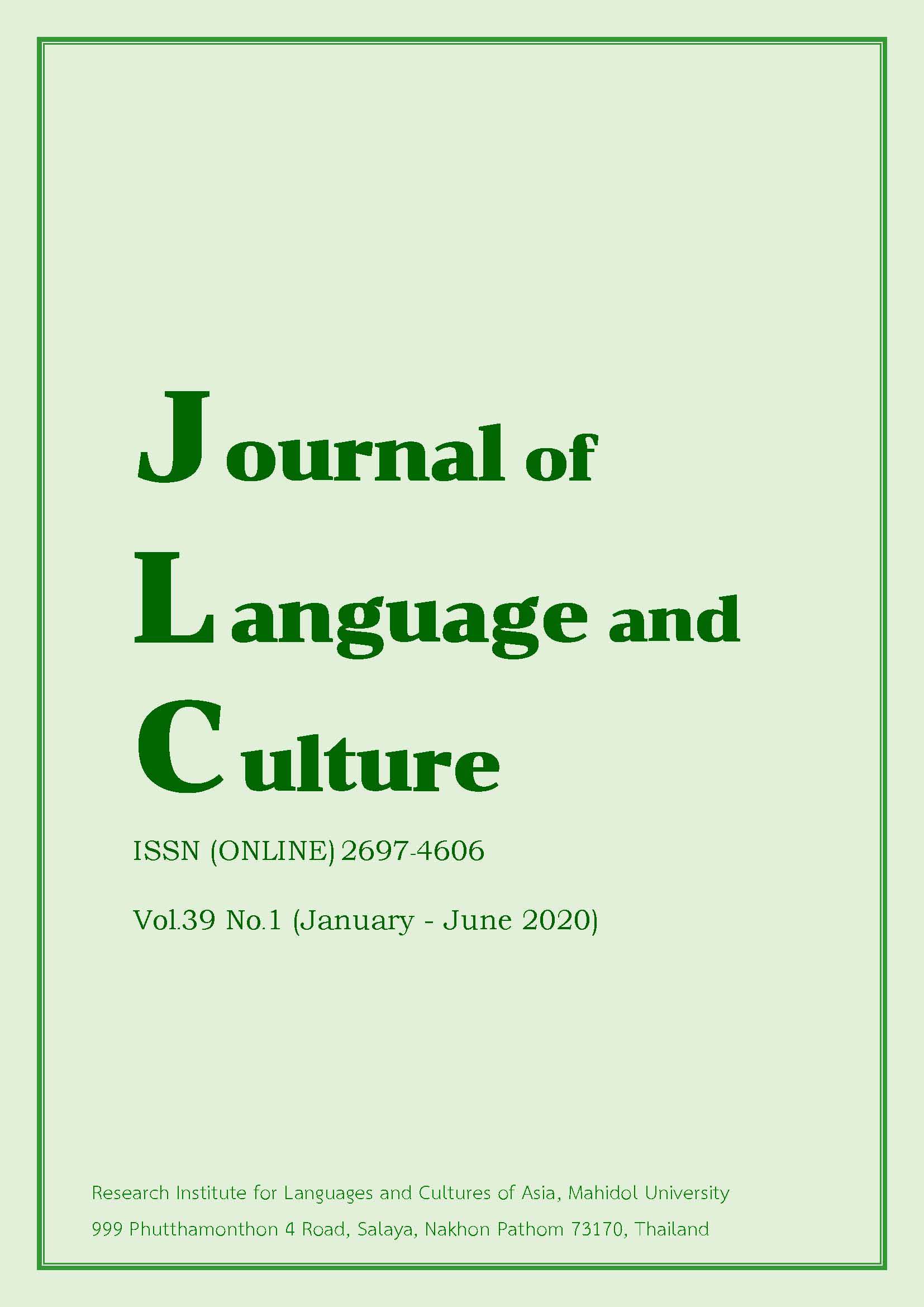Production of English geminate consonants by Thai learners
Main Article Content
Abstract
English contains a large number of words that are spelled with a consonant that occurs twice in succession in a word, such as dinner, happy, and curry. With double consonants, Thai learners may be tempted to prolong the duration of articulation of these consonants according to their spelling. Therefore, the objective of this research was to explore the pronunciation of double consonants (geminate consonants) in the English of Thai learners. The researcher sought to investigate whether the production of geminate consonants by Thai learners is significantly different from that produced by native speakers of English for three different types of geminate consonants and whether the level of language proficiency had a significant effect on Thai learners' pronunciation. In order to answer these research questions, the researcher compared the performance of 60 Thai learners from two different levels of language proficiency with the performance of eight native speakers of English. The statistical results show a significant difference in the production of English geminates between native English speakers and Thai learners. However, the level of language proficiency did not show a significant effect. Ultimately, the researcher hopes that the findings of this study will inform English instructors about effective teaching approaches to help their students identify and gain a better understanding of English geminates and then improve their production.
Article Details
The articles featured in the Journal of Language and Culture (JLC) constitute academic works representing the viewpoints of the respective author(s). It is crucial to note that these opinions do not necessarily reflect those of the Editorial Board.
All articles published in JLC are released under the Creative Commons Attribution 4.0 International License (CC BY 4.0). This license grants permission for unrestricted use, distribution, and reproduction in any medium, provided proper credit is given to the original author(s) and the source.


